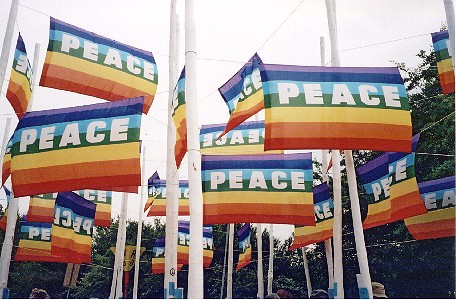
From the Sangama Sutra, trans. by Thanissaro Bhikkhu:
Winning gives birth to hostility.
Losing, one lies down in pain.
The calmed lie down with ease,
having set
winning & losing
aside.
The Buddha uttered this verse when told of the defeat in battle of King Pasenadi at the hand of King Ajatasattu. Given the context, this verse was a commentary on warfare. I think it is particularly appropriate given the violence we are seeing exploding around the world today.
What do we gain by having to win? Anything more than an ego boost? I think it's very east to get caught up in rationalizing our behavior, justifying the means by the ends achieved, and lose sight of the brutality inherent in the means. I think our government is caught up in this quagmire of rationalization and ego.
In an essay entitled A Human Approach to World Peace, the Dalai Lama wrote:
Of the many problems we face today, some are natural calamities and must be accepted and faced with equanimity. Others, however, are of our own making, created by misunderstanding, and can be corrected. One such type arises from the conflict of ideologies, political or religious, when people fight each other for petty ends, losing sight of the basic humanity that binds us all together as a single human family. We must remember that the different religions, ideologies, and political systems of the world are meant for human beings to achieve happiness. We must not lose sight of this fundamental goal and at no time should we place means above ends; the supremacy of humanity over matter and ideology must always be maintained.
Violence is never the answer.




